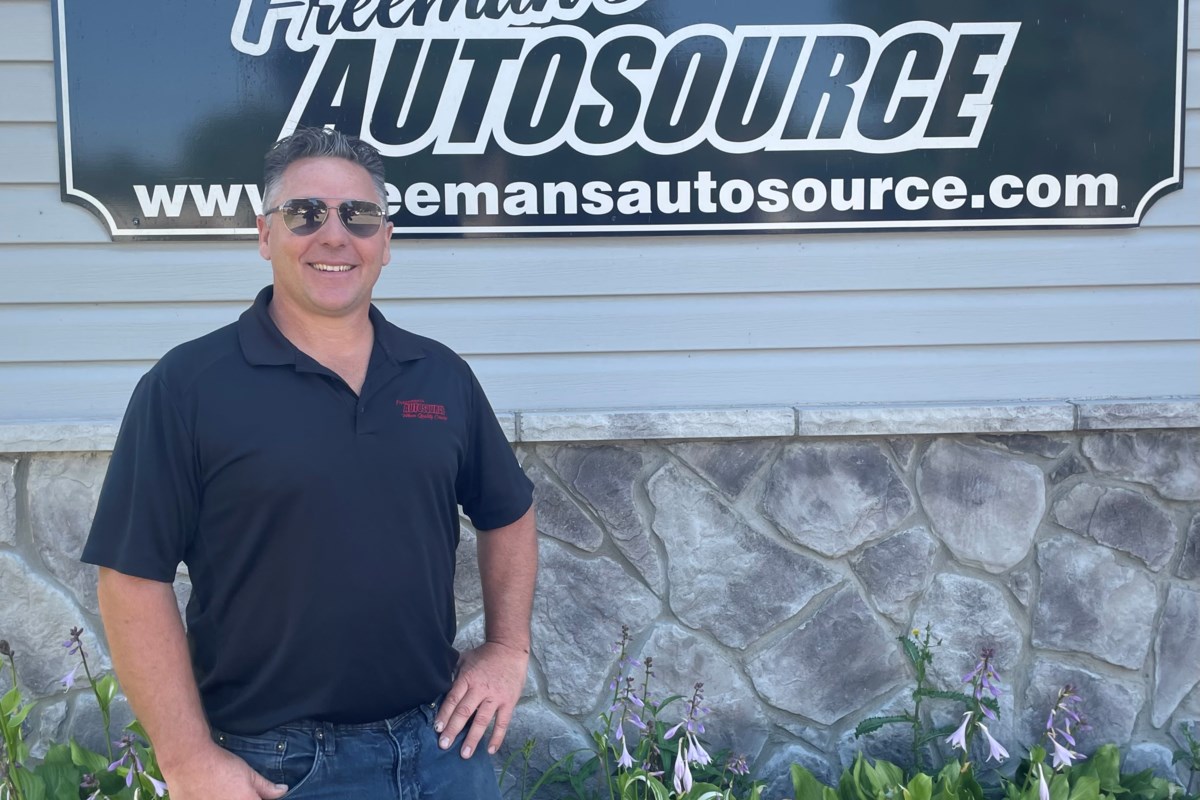Shortage of vehicles leads to high prices at used car dealerships
“We also bid against Americans who buy our cars and bring them across the border,” says Orillia used car dealership
Amid a nationwide shortage of new and used vehicles, local used car dealerships are facing tough times.
As used vehicle prices climb due to a number of supply chain issues, local dealerships have seen their sales decline significantly over the past six months.
“I found out that our foot traffic is probably down 60% in the last six months. The phone isn’t ringing…I think people are watching their money a little more because of the way the economy is going,” said Dan Freeman, owner of Freeman’s Auto Source. VillageMedia. “I could do 20 cars (a month in) a normal early spring market… We’re down to five now, sometimes four, maybe six – very low averages.”
The price hike is due to a number of factors, local dealers said, including reduced inventory due to increased sales in other provinces and the United States, and a shortage of new cars in the world, which in turn eats into the inventory available to used car dealerships. .
“We now also bid against Americans who buy our cars and take them across the border because they have a shortage,” Freeman said. “With 30 cents (advantage) on the dollar, they’re buying a car for a lot less money than we can buy it.”
Roger St. Onge, owner of Auto Choice Sales, added that auctions in other provinces have recently surpassed sales in the United States.
“Over the past six months, we’ve noticed that it’s not the United States, it’s out of province,” he said. “Ontario is the largest province; we have the most cars, so now we see Quebec, Saskatchewan, Alberta, Winnipeg… It’s all the Canadian provinces that are buying these cars now.
With supply chain issues reducing the number of new vehicles on the market, new car dealerships are also holding onto vehicles they would normally unload at used car dealerships.
“There is this lack of new car inventory in the world. It’s not just Canada. The new car dealership is now selling cars it never would have sold years ago,” St. Onge said.
“You bring in a used car — let’s say it’s been driven 150,000 kilometres. So let’s say he’s four years old. They would never keep this car (before); they would resell it to a used car dealer like me. Now they keep it because their sales staff have nothing to sell.
St. Onge added that he was typically able to source 200-500 used vehicles per year from rental car companies in the past, but due to low inventory he did not purchase one. over the past two years.
Rampant inflation, rising gasoline prices and rising interest rates also ate away at sales, local dealers said.
“There’s no more zero percent on a new car. It doesn’t exist,” St. Onge said. “It’s now seven, eight, nine percent. People see that (and) they are scared. We were doing used cars at 5.9. It is now 8.9 percent.
A boom in truck sales during the COVID-19 pandemic has dried up due to rising costs, Freeman said, though he added that other personal businesses have helped him out.
“During COVID, the trucks were just on fire because every family was buying trailers,” he said. “Everyone was going camping and spending time with their families, so they were buying trucks like it was going out of fashion…and now the trucks have slowed down, so there’s not even a buyer for a truck. van now because of the cost of fuel.
All of these factors have led to a situation where cars, contrary to popular belief, have gone up in value over time.
Freeman and St. Onge said the vehicles are still available for purchase, but the key issue is the rising cost of doing business.
“Your first example: a 2015 Chevy Cruze. Four years ago you could buy that vehicle for probably $10,000 and resell it for $12,000,” he said. “Now that same Chevy Cruze costs $12,000 and they have to sell it for $14,000. This car shouldn’t be worth the same amount of money or more than it was four years ago. Cars are depreciating. That’s what they’re doing…but now, because there is a lack of vehicles, (prices) have gone up.
In turn, the higher prices have caused local dealers to cut their profit margins, further impacting their business.
“Our gross profit has dropped at least $1,000 per car, and it’s not because we’re making stupid profits,” St. Onge said. “You take that $1,000 away, you take money out of your sales people, you take money out of everything. Everything had just gone through the roof.
Under the current circumstances, St. Onge urged people to shop locally, whether for used cars or something else.
“What we need now is our city and related areas to support small businesses. I’m not talking about me. I’m talking about the guy down the street selling a shirt. If you need gas, buy it at your local gas station. You need a car, please buy it from your local dealer,” he said.
“If you’re buying out of town and supporting those Toronto dealerships, then the little guys won’t be there.


Comments are closed.